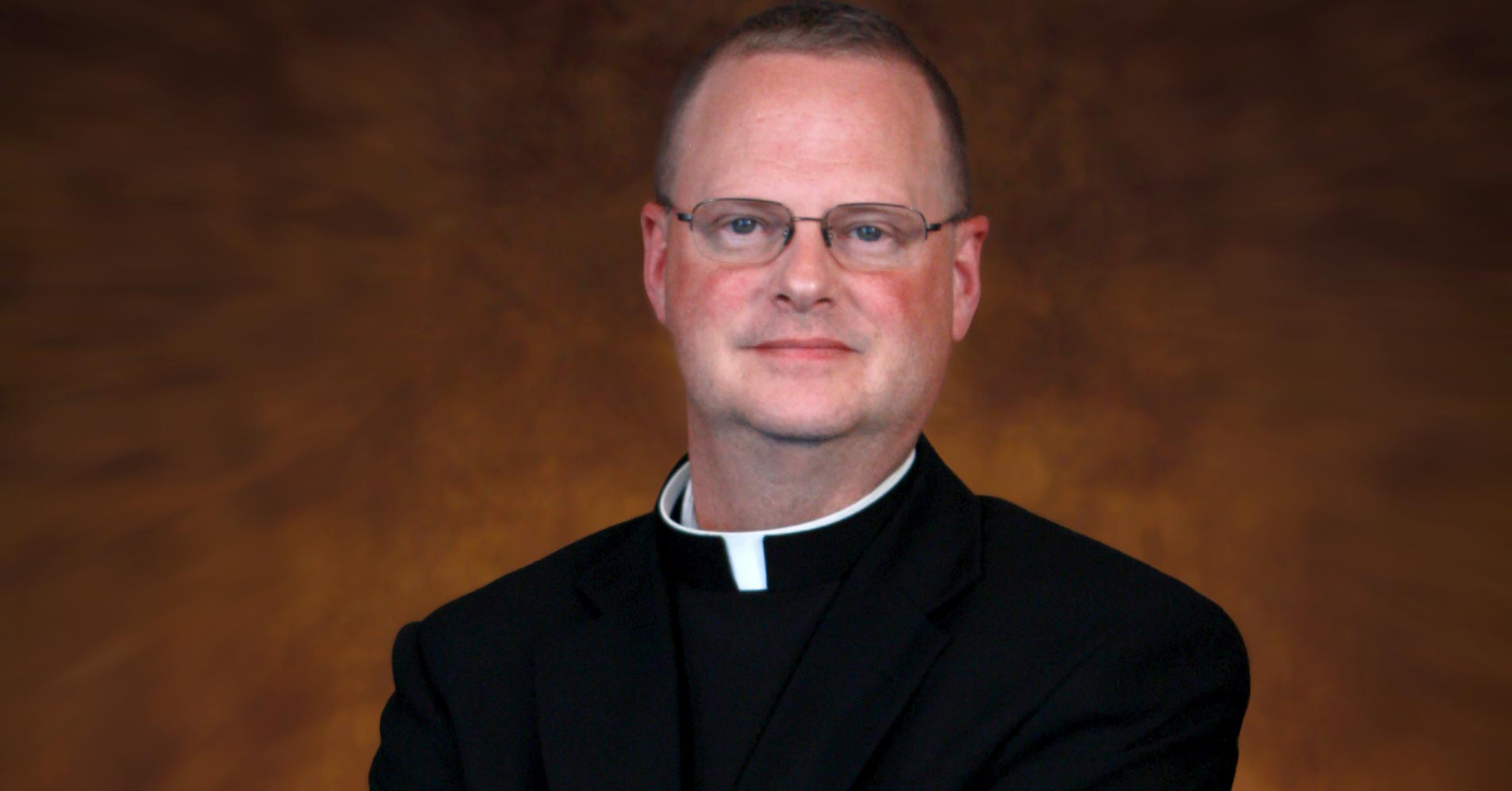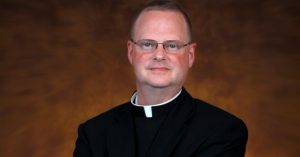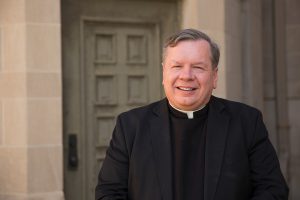
For the past few years, our parish has been privileged to host a seminarian for a few weeks in the summer. This is a wonderful opportunity for a seminarian to get to know what parish and rectory life are like, and a wonderful opportunity for our parish and rectory to be inspired by this young man’s faith and joy.
This year we had Alex Leschisin from Eden join with us. By every account, it was a unique experience for him and for us. Usually, there are things a visiting seminarian does during these summer weeks: he visits shut-ins, he visits the sick, he attends meetings, he spends time with parishioners. This year, due to pandemic restrictions, there were none of those opportunities.
Alex was understanding and found ways to make himself useful during his weeks with us. He mowed and fixed things, and cooked, and read and, I hope, grew.
While there were a lot of different aspects in this summer assignment, there were also the usual elements I try to share. I find that cooking dinner and eating together are vital to communal life. I find that occasionally walking the dog together and talking is important. Father Andrew Thuringer added the new element of sharing some particularly important movies for us to watch and discuss together.
One Sunday evening, the three of us got some food and sat down to watch the movie “Citizen Kane.” I have seen this movie many, many times, so many times that I can sit back and allow the words and images to just flow over me and move me. But the first time you watch the movie, it is all about this: “What the heck is ‘Rosebud’?”
I will not spoil the movie if you have not seen it by answering the question, but I will say that in the last images of the movie, the answer is revealed and it draws you to reexamine the entire movie, and the life of Charles Foster Kane, in a new light.
The three of us watched, Father Andrew and me in our chairs and Alex on the couch. Two hours later, the words “The End” appeared on the screen to swelling music, and I looked at Father Andrew who said, “Such a good movie. Too bad Alex will never know what ‘Rosebud’ is.” I turned and looked and found our seminarian asleep on the couch.
Father Andrew told me Alex had fallen asleep in the last five minutes. I looked over just as he was waking up, sitting up on the couch, looking a little stunned. We expressed our sadness that he would never know the answer to the mystery of the movie.
Alex just sat there, looking sad and disappointed; we could not just leave him there, so we rewatched the last five minutes together. “Oh, yes!” he said as the music swelled…again…and the movie ended; all was revealed and the discussion could begin.
After the discussion was done and the evening ended, I was thinking about how the end, the final revelation, really does not make sense without the context of everything that came before; the end and the journey are intertwined.
If I had not bothered to show Alex the movie and instead just told him the meaning of “Rosebud” at dinner, it would have been an interesting tidbit, a bit of cinematic trivia, but nothing more without the chance to walk with Charles Foster Kane as his life unfolds, and then to look back.
That experience teaches a powerful lesson, the revelation of “Rosebud” does not explain everything about this man, it does not answer all the questions, it is merely a new way to interpret and understand the experiences of his life.
During this month of November when the Church invites us to pray in a special way for the faithful departed, and to ponder the ending of things, it is helpful to allow our belief in the promise of heaven to be renewed.
Heaven is a promise and the goal of our lives of course, but it is not meant to be reduced to a simple reward, or simply the end of a journey. The vision of heaven is the light in which we understand and interpret the experiences of our lives. We come to discover the powerful difference between making choices because we hope to be rewarded and making them because we know we are destined for the presence of God.
One is a human being simply trying to avoid punishment and be rewarded, the other is a human being transformed by the realization of human dignity. The promise of heaven can become more than something separate from “this life,” something we hope for after “this life,” and can be something ever present to guide and renew us.
The promise of heaven is love, and this love is slowly revealed throughout our lives, then, in its fullness, we can look back and see how every day, every breath, has been a glorious gift, infused with God’s presence and promise.
“Rosebud” has always been there.


